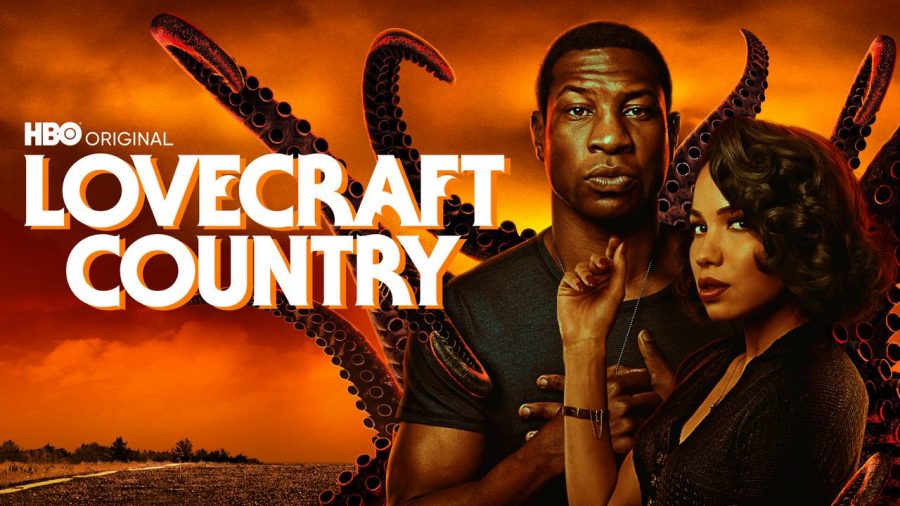IVCC Panel Discusses HBO’s ‘Lovecraft Country’
March 11, 2021
In commemoration of Black History Month, Illinois Valley Community College held a series of informative discussion panels and speeches during the month of February, one of which was led by IVCC alumni Jibril Church. Church, an alumnus of the college and former columnist for the IV Leader newspaper, held a panel via Zoom on Feb. 25, in which he discussed the HBO television series Lovecraft Country.
Co-written by Jordan Peele, Lovecraft Country displays racism in the Jim Crow era, but with a twist: monsters.
Church gave an analysis of the first episode, drawing several similarities between real-life and the show, and in addition, discusses other concepts like black love and Afrofuturism.
He gave a nod to writer H.P. Lovecraft, whom the show is named after and whose life and works of fiction influenced the creation of Lovecraft Country. However, he also explained that Lovecraft’s legacy is “rooted in racism,” further adding that he bore a “strong disdain for black people.”
Church goes on to describe Lovecraft Country as an Afrofuturistic show seeing as it is a fictional, techno futuristic television series that is centered around black people.
The series is centered on Atticus Freeman, a young black man, who is in search for his father who has gone missing; it shows Freeman and other black characters as they battle racism as well as the monsters and ghoulish creatures that inhabit the fictional universe.
“Based in the 1950s of the Jim Crow era, we are understanding that the black individual has monsters not only in white America, but even in the magic world,” Church says.
He states that in the show the characters encounter sundown towns, towns that prevented black people from roaming passed a certain time freely, without the fear of getting killed. “One sundown town that we never talk about is LaSalle-Peru,” he says.
Church recalls a scene that involved the two main characters and white law enforcements after sundown, encountering a “vampire-ific monster” and “despite of the fact that they were being chased my monsters, these officers could not let go of their racism.”
He expressed his awe of the situation and praised the pilot episode for their portrayal of Afrofuturism. Attendees of the panel also felt the same.
Mary Rose Prosinski, a student of IVCC, explained her acclamation of the discussion, noting that “Afrofuturism as a genre of media, while sometimes directed at black audiences, can be enjoyed by people of all races. Lovecraft Country offers a sci-fi esque look into what it is like to be black in America.”
When touching on the main characters of the show, Church explained that the fight of oppression is rooted in our being. “Fighting the oppression is who we are and also struggle is a part of who we are… Stronger individuals, more intelligent individuals, and more driven individuals. We are seeking to find a way that either all of us can live in harmony or that we ourselves can grow from who we are,” emphasized Church.
He continued by describing struggles that black people face and the restrictions that were put on their lives due to the color of their skin in the series. Church mentioned that Hippolyta Freeman, aunt of Atticus, had suppressed views she had of experiencing life to the fullest as an esteemed stargazer and becoming an independent woman, but eventually became free from what was tying her down and embraced her power and strength.
Church elaborated on the present and future generation of black women in the film by saying, “I think the women of the series as well are by far the most incredible, adaptive, and… truly show that no matter what is thrown at them, they do overcome. That they often always will show a resolve that proves that they will never be kept down.”
One of the motifs of Lovecraft Country was heavily discussed as being the ability to live freely in the black community which Church mentioned was an extremely powerful concept in Afrofuturism. This central theme focuses on overcoming oppressors, seeing one’s self-worth, and understanding that life should be lived to the extent.
“Postliberation is peace, power, and even more so, understanding,” Church explained.
After becoming more familiar with Afrofuturism, Prosinski identified that it is prevalent in other forms of entertainment by adding, “The film Black Panther is an adequate example of this philosophy used in the media. The Wiz is also a classic example of Afrofuturism, even though the term was invented long after the film premiered. In The Wiz, the characters are brought on adventures through a mystical land, similar to Afrofuturistic media we see today.”
Church continued as he discussed the character of Ruby Baptiste who had big ambitions to work in a clothing store in the city alongside white people where she would be fully accepted and essentially one of them. After experiencing life as she once desired due to the powerful magic portrayed throughout the series, Ruby missed being a strong black woman who did not need the validation of others as Church indicated.
Church explained that many black individuals, along with himself, may have shared the same light as Ruby at one point. “Our self-love and self-understanding are more important than any other thing that we can experience, more important than the desire to be white,” mentioned Church.
“I would highly recommend this discussion to everyone who is concerned with the disenfranchisement of people of color,” expressed Prosinski. “Church is very thorough in his analysis of Afrofuturism, Lovecraft Country as a series, and both historical and present-day racial conflict.”




